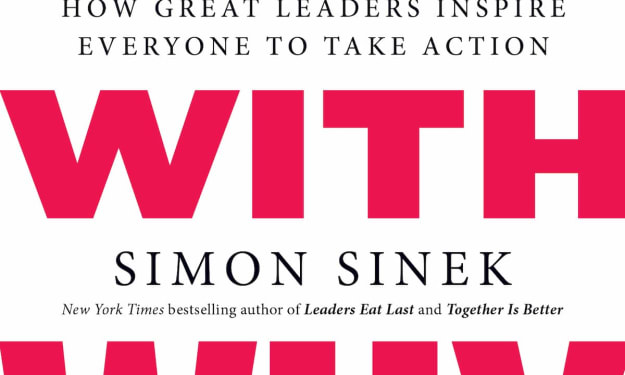The Foundations of Emotional Intelligence: An Overview of EQ, Its Components, and Why It Is Important
Mastering EQ: Key to Success in Relationships & Work

I’ve always found the idea of emotional intelligence (EQ) to be fascinating as I’m really interested in the subtleties of human emotion and interaction. As I moved through both personal and professional situations over the years, it became more and more evident to me how profoundly EQ affects many facets of life. It’s not merely a catchphrase or a refined quality exclusive to executives and counselors; it’s a core competency that every individual needs. I want to break down the fundamentals of emotional intelligence (EQ), examine its essential elements, and discuss why EQ matters so much in the fast-paced, technologically-driven world of today.
What is Emotional Intelligence?
Being emotionally intelligent is having the capacity to identify, comprehend, and control our own feelings in addition to being able to identify, comprehend, and affect the feelings of others. EQ is primarily concerned with our emotional and social capacities, as opposed to classical intelligence (IQ), which assesses cognitive ability. It’s realizing that every emotion sends a message that affects our choices, actions, and relationships with other people.
Why Does EQ Matter?
In today’s world, where technology frequently trumps interpersonal relationships and the pressures of a fast-paced existence can erode our mental resilience, emotional intelligence (EQ) transcends beyond being a practical tool and becomes essential. Improved relationships, professional achievement, and general mental health can all be attributed to high EQ. It prepares us for the intricacies of interpersonal relationships and self-control in a society where people are becoming more emotionally distant from one another.
The Five Components of Emotional Intelligence
- Self-Regulation: Managing your emotions comes next after you become conscious of them. This entails thinking things out before acting, reining in urges, and accepting change in a constructive way. It’s about managing your emotions and preventing a negative mood from creating a hostile work environment or a painful home setting.
- Motivation: People with strong emotional intelligence are typically driven by factors other than material gains like notoriety, wealth, or recognition. They are motivated to succeed only for the purpose of succeeding. They set and meet high performance criteria because they are intrinsically motivated to continuously improve.
- Empathy: Possibly one of the most important EQ components is this. The capacity to place oneself in another person’s shoes is known as empathy. Not only must one comprehend their feelings, but one must also be perceptive of their viewpoint and emotions. Empathy fosters a greater level of understanding and connection between people in a leadership or team setting.
- Social Skills: The last element is relationship management. It’s about managing conflict, inspiring people, encouraging teamwork, and developing rapport in addition to good communication. Building and sustaining friendships, preserving family unity, and navigating the social difficulties of the job all depend on having strong social skills.
EQ in Real Life
Developing EQ has been a rewarding and challenging path for me in life. Improving my EQ has led to deeper experiences and relationships, from better listening to my partner during arguments to controlling my own stress in demanding job environments.
In work environments, I’ve observed that teams with high EQ members frequently do better than others, even when their members lack the most technical expertise. It’s about recognizing and utilizing one another’s skills, providing helpful criticism, and creating a welcoming environment.
Building your EQ
Gaining more emotional intelligence takes time. It’s an ongoing process that calls for in-depth reflection, adaptability, and real-world application. I’ve found the following tactics to be helpful:
- Consider Your Emotions: To better understand your emotional reactions, keep a journal, practice meditation, or just spend time thinking.
- Request Feedback: We don’t always view ourselves as others do. It might be eye-opening to hear direct criticism regarding your emotional management techniques.
- Develop Empathy: Make an effort to see things from other people’s viewpoints. This aids in comprehending the reasons behind their possible feelings or behaviors.
- Boost Your Listening Skills: By actively participating in conversations, you can better understand others and establish deeper connections with them.
- Handle Stress: Discover good coping mechanisms to deal with stress, such as physical activity, hobbies, or relaxation methods. Stress can impair judgment and social interactions.
Conclusion
When I think back on my own journey with emotional intelligence, I see how growing EQ has been among the most meaningful and gratifying experiences I’ve had. My perspective on myself and my interactions with the outside world changed when I started to consciously concentrate on comprehending and controlling my emotions. Relationships that had previously felt difficult or tense started to open up; I was able to resolve issues with a clarity and calmness that I had not previously known. I noticed that I was more calm and collected at work, where dynamics and demands can frequently result in tension. This allowed me to address issues in a balanced manner.
I can think of one specific incident where my newly developed EQ came in handy at work. The team morale was at an all-time low, deadlines were missing, and a project was becoming out of control. This time, I responded differently than I may have in the past — perhaps with equal parts panic and frustration. I was able to manage my anxiety by acknowledging it, staying composed utilizing self-regulation strategies, and approaching the team with empathy and a readiness to listen instead of criticizing. The group’s response changed right away. We communicated honestly about our problems, worked together to find solutions, and — above all — restored our sense of unity based on respect and understanding amongst one another. This encounter demonstrated my progress in developing emotional intelligence and provided a clear example of the usefulness of EQ in practical settings.
Reaching emotional managing perfection is not the goal of EQ improvement. It’s an ongoing process of development, learning, and adjustment. There are fresh challenges and chances to practice and hone these abilities every day. It involves responding thoughtfully, being aware of your surroundings, and being receptive to comprehending other people’s and your own feelings.
And thus, I invite my readers to accompany me on this journey as I continue to enhance my emotional intelligence. The quest for increased EQ is definitely worthwhile, regardless of your goals — whether they are to improve your career, deepen your connections with others, or just get a greater understanding of yourself. It’s about tuning in to the core of what it is to be human — the capacity for feeling, empathy, connection, and development. The process of improving EQ is continuous, full of learning and development, and one that I personally believe is very beneficial. Developing emotional intelligence (EQ) is more than just self-improvement in a world where virtual connections frequently trump true emotional ties; it’s a means of restoring authenticity and depth to our interactions. I think that by cultivating emotional intelligence, we can make the world more understanding and compassionate in addition to making personal lives more satisfying.
My Top Books on Emotional Intelligence
Emotional Intelligence: Why It Can Matter More Than IQ by Daniel Goleman
Primal Leadership: Realizing the Power of Emotional Intelligence, by Daniel Goleman
The 7 Habits of Highly Effective People, by Stephen Covey
The Language of Emotions: What Your Feelings Are Trying to Tell You, by Karla McLaren
Emotional Intelligence 2.0 by Travis Bradberry & Jean Greaves
Dare to Lead: Brave Work. Tough Conversations. Whole Hearts by, Brené Brown
About the Creator
Kenton Hockett
Entrepreneur, Self Growth Advocate, Life Long Learner, Habitual Reader, Product Reviewer






Comments (1)
Great read! And such an important topic. Thank you!